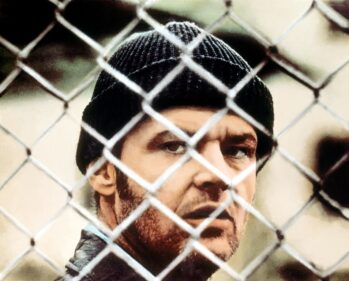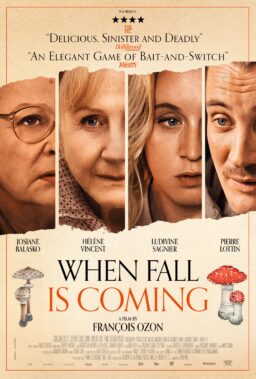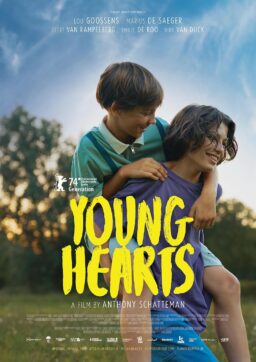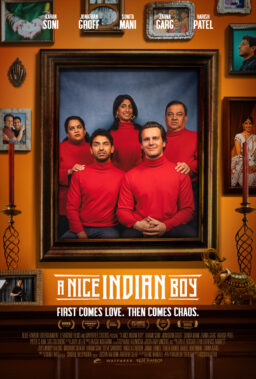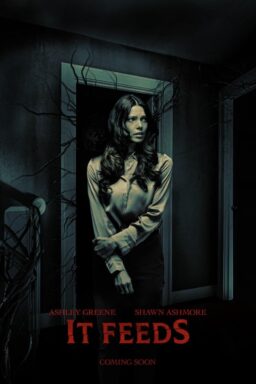The organizers of Mexico’s Los Cabos International Film
Festival understandably put an emphasis on “international,” but this year they
might have promoted it as something else: intergalactic.
On the festival’s final night, guests Liam Neeson and Ewan
McGregor mount the red-carpeted entranceway to Cabo San Lucas’ Pabillón
Cultural, then pause and square off with imaginary lightsabers. A few moments
of jokey jousting for scores of hair-trigger paparazzi and not only does the
new “Star Wars” have a real-life teaser, but the Los Cabos festival gets an
image that’s guaranteed to relay its name around the globe.
That reach is appropriate to a festival that advertises
itself as the “Cannes of Latin America.” Founded only four years ago, the Los
Cabos event has set itself apart from other Mexican festivals by building a
reputation as a place where producers, agents and other industry folk can
gather to make deals and scope out new talent in one of Mexico’s most popular
resorts, which benefits from its proximity by air to Los Angeles.
The festival’s global aspirations are reflected in its
programming, which offers a smart mix of films that concentrates on three countries—Mexico,
the U.S. and Canada—while also featuring other Latin American and international
titles. Of the latter, this year’s roster included “45 Years” (United Kingdom),
Andrew Haigh’s moving study of a troubled marriage featuring justly acclaimed
performances by Charlotte Rampling and Tom Courtenay; “Tale of Tales”
(Italy-France), a baroque, seriocomic rendering of three 17th
century Neapolitan tales by “Gomorra” director Matteo Garone; and “Office”
(China-Hong Kong), Johnny To’s musical send-up of corporate culture set against
the 2008 stock market crash.

Among the Canadian entries, two came with directors in tow.
Jean-Marc Vallée, whose “Wild” opened last year’s festival, took the stage on
opening night to receive a career award from his Oscar-winning “Dallas Buyers
Club” star Jared Leto. Despite a fine lead performance by Jake Gyllenhaal,
“Demolition,” Vallée’s latest, isn’t on a par with his other recent films.
Telling of a man whose life takes several bizarre turns after his wife is killed
in a car accident, it has a story that’s so random and haphazard it leaves you
wondering, “Who could have read this script and thought it would make a good
film?”
An award recipient at last year’s festival, Atom Egoyan
returned with “Remember,” a geriatric thriller featuring the great Christopher
Plummer as an Auschwitz survivor who leaves his nursing home on a quest to
track down and kill the Nazi commander who murdered his family decades earlier.
Though the film is a long way from the artistic ambitions of “Exotica” and “The
Sweet Hereafter,” it’s a solid genre piece that boasts a number of satisfying
plot twists, expert performances (the cast also includes Martin Landau and
Bruno Ganz) and sure craftsmanship by Egoyan.
The festival’s selection of American films, meanwhile, had a
“best of the fests” aura. While the Egoyan and Vallée films occupied two of the
gala evening screenings, the other two went to U.S. films that have been
stand-outs on the fall festival circuit: Todd Haynes’ lush period romance “Carol,”
with its terrific lead performances by Rooney Mara and Cate Blanchett, and Danny Boyle’s “Steve Jobs,” featuring the bravura work of Michael Fassbender as
the driven Apple impresario. Cabos viewers also got a dose of Hollywood star
power from Scott Cooper’s “Black Mass” and its ice-cold lead work by Johnny
Depp as murderous Boston mobster Whitey Bulger.
There was more of a Sundance vibe to other U.S. entries,
which included “Tangerine,” Sean Baker’s winning, iPhone-shot portrait of
transgender street life in L.A.; Marielle Heller’s “The Diary of a Teenage
Girl,” which showed with star Alexander Skarsgård fielding questions
afterwards; and Josh Mond’s bleak tale of a young man’s travails, “James
White,” which features some coastal Mexico scenes while being mainly set in New
York. That city is also home base for indie filmmaker Alex Ross Perry, who was
the subject of a Spotlight sidebar that included screenings of his recent
Elizabeth Moss-starrer “Queen of Earth” as well as his first two films, “Impolex”
and “The Color Wheel.”
For this writer, the festival’s most notable attraction is
always the chance to see a complement of new Mexican features, which dependably
prove the ongoing vitality of a cinema that has given contemporary Hollywood
some of its most distinctive and creative filmmakers. While no film this year
topped the achievement of Alonso Ruizpalacios’ “Güeros” last year, there were a
number of standouts, including two that took home prizes.

Alejandra Marquez’s “Semana Santa,” which won the Mexico
Primero FOX+ prize, is a downbeat comedy-drama about a woman holed up at an
Acapulco hotel with her young son and new boyfriend. The trip seems to be
intended as a vacation, but there are underlying tensions and ambient
temptations that mean no one is having much fun, or at least the kind they
meant to have. Atmospheric and beautifully shot, this is the sort of film that
depends almost entirely on directorial subtlety and winning performances, and
Marquez delivers on both in her impressive second film.
Julio Hernández Cordón’s “Te Prometo Anarchía” (“I Promise
You Anarchy”), winner of both the festival’s top prize and the FIPRESCI critics
prize, also depends a lot on style. A decidedly offbeat mix of gay/bisexual
romance, irreverent street comedy and sometimes harrowing crime drama, the
film’s story focuses on two teenage pals who’ve become lovers even though one
also has a girlfriend. The boys think that there’s some easy money to be had
getting people to sell blood, but then a drug cartel makes off with a truckload
of their customers and their scheme quickly unravels. The story’s quirky
unpredictability and the direction’s Altmanesque textures account for much of
its appeal.
Crime was also a subject in other Mexican films including
David Pablos’ “Las Elegidas” (“The Chosen Ones”), which starts out looking like
an innocent teen romance, until it becomes clear that the boy’s father expects
him to follow a family tradition by forcing his girlfriend into prostitution.
The girl is duly seized and put to work in a brothel, and dad tells the boy the
only way he can free her is to find another girl to take her place. With its
strong direction and performances, the film has unnerving power of a waking
nightmare.
Illness of various sorts was a theme in another set of
Mexican films. Michel Franco’s “Chronic,” which won a prize for Best Screenplay at
Cannes this year, is a Mexican production that’s in English and set in what
appears to be southern California, where it follows Tim Roth as a home care
nurse who moves from one terminally ill patient to another, sometimes
developing relationships that seem to indicate troubles in his past. Roth is
terrific in the film, which has the chilly remove of a Michael Haneke drama,
yet, despite that screenplay prize, doesn’t quite know how to resolve the
intriguing issues it raises.
Among the festival’s more unusual pleasures, Steve
Balderson’s “El Ganzo” takes its name from an actual hotel in San Jose del
Cabo, a place known for its arty ambience. The story here has an American woman
at loose ends arriving at the hotel and finding a soul mate of sorts in a gay
man who’s traveling on his own. The film is slight but well-executed. More than
one viewer opined that it plays like a commercial for the hotel, but given the
quality of the accommodations in this resort, that’s not entirely negative.
There are certainly worse cinematic fates than to look again at the beauties of
Baja, Mexico.





